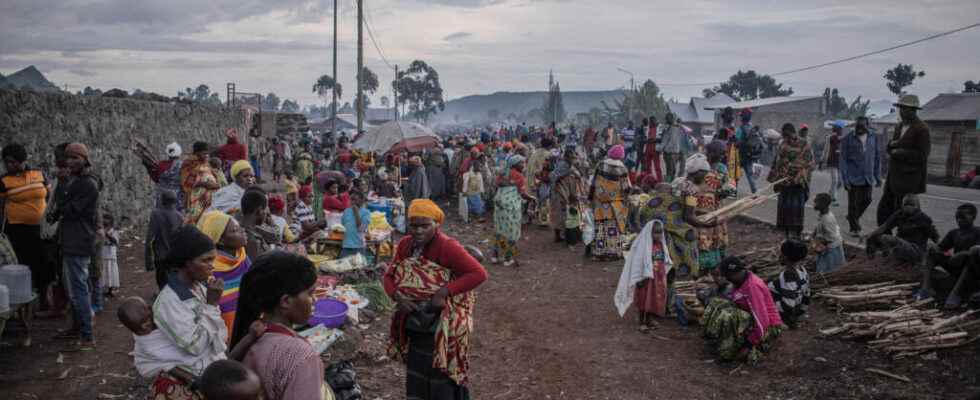The non-governmental organization (NGO) Amnesty International is publishing a report on February 17, 2023 on abuses committed by the M23 rebellion in the east of the Democratic Republic of Congo (DRC), more particularly in the village of Kishishe between the November 21 and 30, 2022. The NGO highlights in particular dozens of rapes committed by militiamen.
This is a new document that sheds light on the events that took place at the end of November 2022 in North Kivu, in the east of the Democratic Republic of Congo (DRC). The human rights non-governmental organization (NGO) Amnesty International published on February 17, 2023 an investigation into the abuses committed by the M23 rebellion in the areas of Bambo and more particularly in the village of Kishishe between 21 and 30 November.
The DRC and the United Nations accused the M23 of killings, rapes and looting, causing 171 dead according to the UN, 272 according to local authorities and eight according to the armed group. If Amnesty evokes a balance sheet of at least 20 dead, the NGO recognizes that it is probably underestimated. Because these 20 dead are the victims of whom Amnesty has the identities and the circumstances of death.
But in the published investigation, there is this testimony from a woman who recounts a mass killing at the Kishishe church on November 30, and who says she counted at least 80 bodies. ” I had never seen so many bodies “, she says. Credible testimony according to Amnesty, which adds that it has been corroborated by other sources and other witnesses. This suggests that there were other executions in the area, by the M23.
” At least 66 women and girls » raped
And these are not the only crimes documented by the NGO: in this investigation, it evokes a massive wave of rapes. ” At least 66 women and girls “were violated by” the M23 armed group, supported by Rwanda “, specifies the press release. The rebels went door to door, in a campaign that Amnesty describes as ” apparently planned “.
” The M23 soldiers went from door to door, they killed the adult men they found in the houses and they systematically raped the women, and even girls under the age of 18.says Jean-Mobert Senga, researcher for the DRC at Amensty. We collected consistent and credible testimonies according to which they seized stocks of condoms which were available in the local health structures, before starting this rape campaign with the clear intention of punishing the local populations for their supposed link with local armed groups, including FDLR [Forces démocratiques de libération du Rwanda, Ndlr] which are also the M23. From a legal point of view, given their widespread nature and other circumstances that surrounded these acts, they certainly constitute war crimes and could even constitute crimes against humanity. “.
” Independent investigators must be able to go to the scene »
Amnesty warns about the living conditions of the victims. They lack everything: food, health care, but also psychological support.
” The visit to the scene is absolutely necessaryunderlines finally Jean-Mobert Senga. With regard to investigations, independent investigators must be able to go to the scene, in Bambu but also in other areas. We know that there are crimes that have also been committed by other actors, let this be clear, including by the Congolese armed forces and armed groups affiliated with them. But for all of this to be clarified, investigators must be able to go to all these areas, and systematically document all these crimes so that the perpetrators can answer for them. What we (are wondering) is that there can be serious investigations, whether by Congolese justice who has primary responsibility in this regard, but also by other actors, including possibly by the office of the prosecutor of the International Criminal Court and we will make pleas in this direction”.
